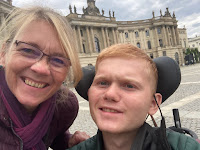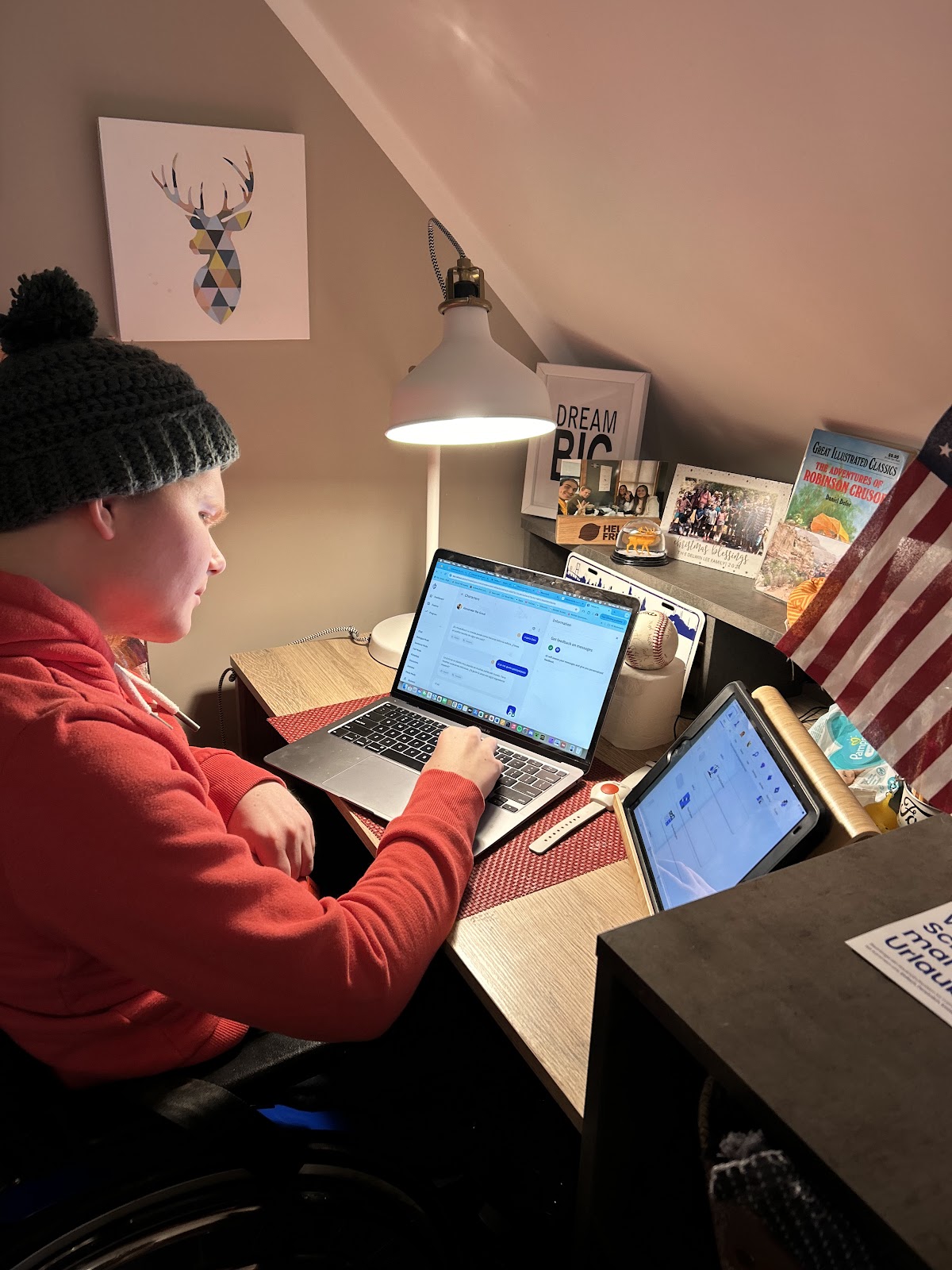Tobias new adventure: "Understanding Neurofeedback: An Effective Treatment for Stroke Recovery"
- "Understanding Neurofeedback: An Effective Treatment for Stroke Recovery"
Hello dear readers,✋😍
I'm sharing with you today our recent journey into the world of Neurofeedback, a treatment approach we've embarked on with Tobias, following his brain hemorrhage. We're hopeful that this could make a significant difference in his recovery, and I wanted to share some insights about this promising therapy. I also wanted to tell you something rather funny. Tobias is all about science, (that's while his plan was to get his P.H.D. in Biotechnology) we always had heavy discussions about alternative treatments.
- As I suggested Neurofeedback, it required lots of talking with him. Tobias responded: Its all Pseudo-science and laughed. He agreed, that I can try it on him :).
We also try to raise money for a good friend, a single mom who needs help at this point of her life. Here is a link: https://gofund.me/12b42e57
Neurofeedback is a form of biofeedback where real-time displays of brain activity are used to teach self-regulation of brain function1. It's been clinically proven effective in treating symptoms following a stroke, helping many patients increase independence and improve their quality of life2. Still, there is in my opinion more study to do on the real effect on Neurofeedback. Why: It did show success, but not enough that a health insurance would cover it due to scientific prove, it needs to be tried on a broader audience and larger number of people, perhaps.
The past few weeks have been rough, with weak muscles, a cold, two times to the hospital for the change of medication, a CT and filling up the baclofen pump. Tobias now fights cold which makes things more challenging. But we're determined, and despite the hurdles, we've managed to reduce some medication and are now preparing to start over.
One of the great things about neurofeedback is that it requires little physical effort from the patient. As Tobias sits back and relaxes, his brain is being trained. The technology targets specific parts of the brain based on individual profiles and needs3, essentially doing "physical therapy" for the brain.
Research has shown that neurofeedback can help improve motor skills and cognitive functions4. Functional recovery typically occurs in about 95% of stroke patients within the first 12.5 weeks (~3 months) following neurofeedback treatment5.
But the benefits of neurofeedback extend beyond just stroke recovery. I will be using it as well and very excited about it. My goal is to relax more and for my brain to learn to go less in to the panic mood when something changes. (Like Tobias starting with a cold ...lol ) That means, Neurofeedback. is a versatile tool that can help in various aspects of life. From managing stress and anxiety to improving focus and sleep quality, neurofeedback offers a non-invasive way to better understand and regulate our brain function.
Remember, every journey begins with a single step. And for us, that step is embracing the potential of neurofeedback. We're hopeful for what the future holds and will be sure to keep you updated on our progress.
Stay tuned, and as always, thank you for your support.







Comments
Post a Comment
Thanks for leaving a comment. We appreciate and enjoy your well wish and the thoughts you are sharing with us. Love, The Dunn's